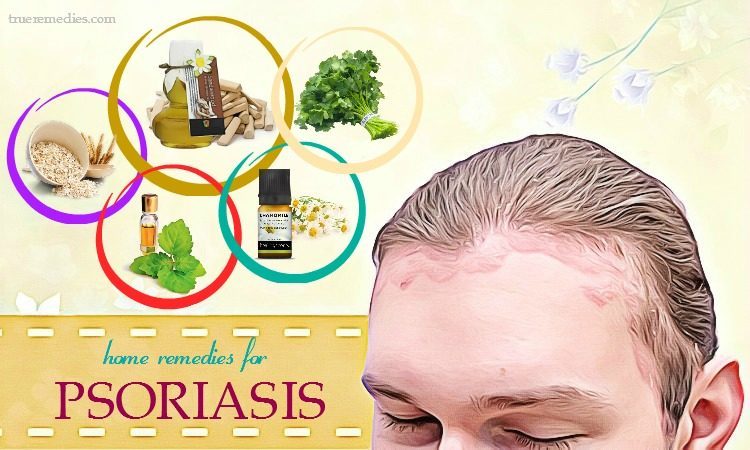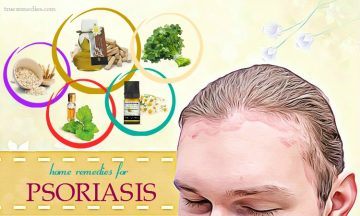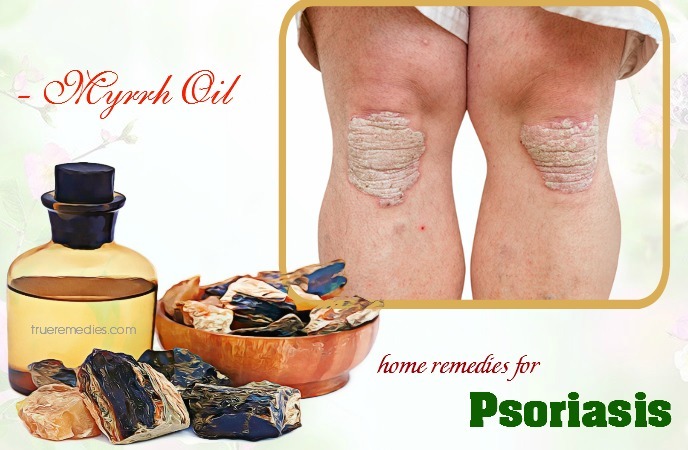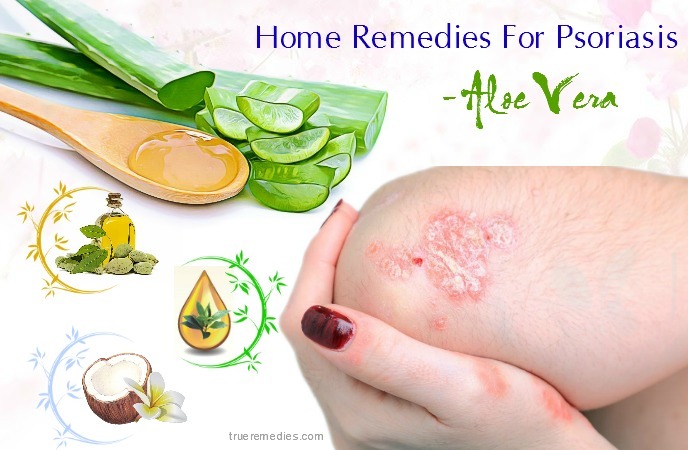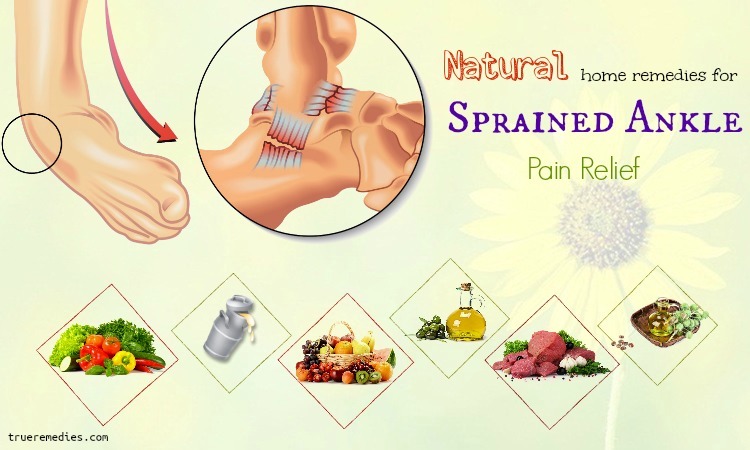updated: 11/11/2019
Contents
If you are having itchy, dry, scaly, red, and painful patches of skin, chances are you are having psoriasis symptoms. Psoriasis is considered one of the most common skin disorders which speed up the lifecycle of normal skin cells. It makes the skin cells to develop quickly on the skin surface. This condition often appears and disappears in cycles over the life of a person. It is believed that this condition impacts more than 3% of the population in the U.S [1].
Actually, there is no absolute cure for psoriasis, yet you can totally manage its symptoms right at your home. That is why this article is written to help you deal with that need. To get general view about psoriasis and its cure, you need to read on all parts of this entry which will not let you down. Take a look!
What Is Psoriasis?
Psoriasis is an autoimmune and chronic skin disease which usually comes and goes. It produces plaques of scaling, thicken skin. The dry skin areas are derived from the excessively quick proliferation of skin cells. Psoriasis often impacts the skin of the scalps, elbows and knees.
This disease has spectrum ranging from mild, small areas to thick, large plaques to red inflamed skin which impact the whole body surface.
Psoriasis has a variable course and impacts both genders and all races. Despite this condition could be seen in people of all age, from babies, children to seniors, most people are diagnosed with psoriasis in their early mature years.
TrueRemedies Partner Solutions

Need a Help from the Leading Expert Online, Available 24/7?
They’re all here and ready to answer your questions online or by phone. Keep asking questions until you get the answer you need.
The symptoms of psoriasis could vary in accordance with its form. Even, psoriasis could result in psoriatic arthritis, which is an inflammation of joints which impacts about 30% of all psoriasis sufferers.
Is Psoriasis Contagious?
The answer is no. It is not a contagious disease and not transmitted physical or sexually contact. This condition is not caused by diet, lifestyle or bad hygiene.
What Are Causes Of Psoriasis?
The causes of psoriasis is not completely understood, yet it is thought to be associated with a certain immune system issue with T cells as well as other white blood cells, named neutrophils, in the human body. Despite most doctors are not sure about the exact causes of this condition, natural physicians have discovered some triggers of psoriasis, which are:
- Infections like skin or strep throat infections
- Stress
- Skin injury, like a scrape or cut, a severe sunburn or a bug bite
- Smoking
- Deficiency of vitamin D
- Heavy consumption of alcohol
- Certain medications like high blood pressure medications, antimalarial drugs and iodines
- Poor diet
- Overactive immune system
- Hormonal changes
- Poor function of livers
- Trouble digesting protein
- Abnormal small intestine permeability
Once you want to get rid of psoriasis, you should follow a healthy psoriasis diet in order to notice significant improvements.
What Are Symptoms Of Psoriasis?
The signs and symptoms of psoriasis are different among people; however, some common symptoms are:
- Small spots that scale on skin
- Cracked, dry skin that might bleed
- Red skin patches which are covered with silvery, thick scales
- Pitted, thickened or ridged nails
- Stiff or swollen joints
- Dandruff on scalp
- Discoloration in fingers as well as toenails or the development of toenail fungus
- Nails detaching from nail beds and could be bloody or painful
- Emotional issues because of feeling hopeless or embarrassed about their skin [3]
The patches of psoriasis could range from several spots to main eruptions covering large skin areas. The majority of psoriasis experience cycles, which flare for several weeks or months, and subside for a time or go into remission.
Some types of psoriasis are:
- Plaque psoriasis
- Nail psoriasis
- Guttate psoriasis
- Inverse psoriasis
- Pustular psoriasis
- Erythrodermic psoriasis
- Psoriatic arthritis
What Are Risk Factors?
In fact, everyone could suffer from psoriasis, yet the following factors may increase your potential risk of developing disease:
- Stress: Having stress may affect your immune system and high levels of stress might boost your chance of getting psoriasis.
- Bacterial and viral infections: Those people having HIV are at high risk of developing psoriasis than those with healthy immune system. Children as well as young matures having recurring infections, especially strep throat, are also at higher risk.
- Obesity: If you have excess weight, your chances of getting psoriasis are also high. The plaques accompanied by all kinds of psoriasis usually develop in skin folds and creases.
- Family history: Having a family member getting psoriasis also increases your chances of suffering from this disease. The risk will be increased more if your parents also have psoriasis.
- Smoking: This increases both the risk of getting psoriasis and its severity.
When To See A Doctor?
In case you suspect that you might have psoriasis, you should see a doctor for proper examination. Also, consult your doctor if your condition shows some signs below:
- Pain and discomfort
- The difficulty in performing routine tasks
- Concern about the skin appearance
- Joint problems, like swelling, pain or irritability to execute daily activities
Also, do seek medical advice if your symptoms get worse or do not improve over time with treatment. You might need a different medication or a combination of remedies to help manage the condition.
Some complications associated with psoriasis include psoriatic arthritis, obesity, type 2 diabetes, cardiovascular disease, high blood pressure, eye disorders like blepharitis, uveitis, kidney disease, emotional problems, Parkinson’s disease and conjunctivitis.
In fact, conventional treatment for psoriasis may work, yet it usually does not or is just a temporary treatment that does not eliminate the root cause. There are a lot of natural home remedies for psoriasis, including a psoriasis diet which gets on top of the list.
Check out below to see which the best home remedies for psoriasis on face, hands, legs and scalp are:
25 Effective Home Remedies For Psoriasis On Face, Hands, Legs And Scalp
1. Get Sunshine
It is recommended taking at least 20 minutes of sunshine every day, from 3 to 4 days per week. It can improve psoriasis symptoms naturally through increasing the levels of vitamin D. In accordance with research, vitamin D can change the way that body cells develop and may slow down new skin cell production in those with psoriasis, thereby decreasing plaque. As a result, it relieves symptoms of psoriasis such as scaling and thick skin.
Also, vitamin D can impact positively the way our immune system operates and lower the inflammation or autoimmune reactions [4]. However, if you suffer from sensitive psoriasis patches because of not using medication use or going through a psoriasis flare-up, you should not expose to the sun too much to avoid sunburns. Remember to wear SPF 30 or even higher in case you are prone to getting burns. But do not get sunlight if the sun is at its strongest, from 10 am to 2 pm. Or, you can use an indoor light box to boost vitamin D intake.
2. Tea Tree Oil
If your skin dry or inflamed, your psoriasis symptoms will be at their worst. Thus, moisturizing your skin is very essential in this case. Think of using natural anti-inflammatory oils to relieve the symptoms such as pain, scaling and redness. Basing on the sites where flaking and itchiness happen, moisture could be increased by using lotions, gels, creams, foams, natural shampoos or ointments [5].
When it comes to essential oils for psoriasis, people often think of tea tree oil first. This essential oil is famous around the world due to its antifungal, anti-inflammatory, antiseptic, antibacterial and analgesic properties, making it a great solution for psoriasis patches while also eradicating itchiness and pain and improving the skin appearance.
Remember to dilute tea tree oil on your skin. Undiluted type may exacerbate your condition.
- Mix 1 tablespoon each of tea tree oil and coconut oil together
- Apply this mixture over your affected skin
- Repeat this routine twice per day
3. Chamomile Oil
Itchy and dry skin is usually the initial sign of psoriasis, yet those signs could be controlled by rapidly moisturizing skin to help soothe the discomfort. Chamomile oil possesses anti-inflammatory properties, which could temporarily eradicate pain.
Mix chamomile oil with peppermint oil to create one of popular home remedies for psoriasis. These oils could be consumed internally; therefore, you do not need to add any carrier oil. Apply this mixture over your impacted areas regularly to eliminate red patches.
4. Sandalwood Oil
The next one in this list of home remedies for psoriasis is sandalwood oil. This oil can benefit the symptoms of psoriasis in two ways. First, it moisturizes your skin and seals it to help protect your skin from infections as well as environmental irritants. Second, it reduces inflammation and pain in the inflamed areas.
- Mix 10 drops of sandalwood oil with 1 tablespoon of coconut oil
- Rub this mixture on the affected sites
- Reapply this routine for once or twice per day, especially at night before your bedtime
5. Patchouli Oil
Patchouli oil is very useful when it comes to reducing inflammation of skin in various forms, such as psoriasis. Patchouli can prevent infections and eradicate swelling and redness. This oil is safe if taken in the form of food. You can use it externally and internally.
It is not necessary for you to dilute this oil, despite people having sensitive skin should use it with caution. Apply the oil over your affected areas for once or twice per day till your psoriasis flare-ups disappear.
6. Angelica Oil
Angelica oil is known as a natural powerful detoxifier for the body and skin. It has the ability to soothe your skin, keeps it hydrated and moisturized, and eradicates environmental toxins that may worsen your psoriasis symptoms.
- Mix 5 drops of angelica oil with 1 tablespoon of a carrier oil like olive oil.
- Mix them well before massaging over your affected sites
7. Myrrh Oil
Myrrh oil has powerful healing effects, so it can soothes your cracked, flakey skin. It can even decrease your stretch marks.
The antibacterial, antiseptic, antifungal and anti-inflammatory properties of Myrrh can support your skin to heal and restore new skin cells. As a result, you will recover faster.
Apply myrrh oil to your affected sites to heal affected skin and prevent your skin developing wrinkles and fine lines, and stretch marks.
8. Lavender Essential Oil
Lavender oil is considered the most versatile therapeutic oil. Thus, it comes down as one of effective home remedies for psoriasis on face, hands and legs. It is restorative to your skin and helps to deal with all skin issues, such acne, boils, burns, bruises, allergies, eczema, dermatitis, sores, psoriasis, etc. Furthermore, the anti-inflammatory and calming effects of lavender oil are beneficial to help heal and restore psoriasis affected areas. It soothes your flakey, dry skin and calms down inflammation whilst rejuvenating as well as accelerating the growth of new skin cells.
You can blend lavender essential oil with the majority of oils, particularly florals, citrus, clove, cedarwood, pine, clary sage, geranium, oakmoss, patchouli, and vetiver.
9. Clary Sage Oil
This may be a little known oil but it has anti-inflammatory and antiseptic properties, helping to stop a flare-up of psoriasis from worsening quickly. Also, it could protect the open, small sores on the affected areas from getting infected, which may worsen the itching symptoms.
Simply add 10 drops of clary sage oil to your bathwater and soak yourself in this solution. Or, you could put the oil in the water, dip a washcloth into it and press the cloth against your affected skin for 15 minutes to let active ingredients do their job.
10. Turmeric
A lot of home remedies for psoriasis on face, hands, legs and scalp require topical care, but turmeric has more to do with the things you ingest. According to studies, this spice can reduce inflammation in some skin issues, such as psoriasis. The antioxidant found in turmeric named curcumin has been proven to effectively protect the human skin by neutralizing the free radicals and decreasing the process of wound-healing.
In order to get benefits, you should take about 1 teaspoon of turmeric daily. Its citrusy, subtle flavor can work well with veggies, rice, and pasta along with other cooked meals.
11. Apple Cider Vinegar
Fact is, apple cider vinegar has been used for so long time as a disinfectant. Apple cider vinegar with its antiseptic properties can help to eliminate the irritation accompanied by psoriasis. Nonetheless, you should opt for unfiltered, organic and raw apple cider vinegar because it has the most beneficial bacteria than other types.
This ingredient can make your body’s pH level more alkaline, thereby improving the digestive function and killing off toxins which lead to fungal or viral infections. Also, apple cider vinegar has vitamins A, C, B1, B5, minerals such as iron and potassium, and alpha-hydroxy acids. These ingredients can exfoliate the top skin layers.
You can use apple cider vinegar for psoriasis relief by following these methods:
Method 1: Home remedies for psoriasis using only apply cider vinegar
- Add 2-3 tablespoons of apple cider vinegar to a glass of water
- Mix them well and have it before your dinner
- Do it once per day
Method 2: Apple cider vinegar and baking soda
Baking soda can heal your skin due to its anti-inflammatory properties. Besides, it can balance the pH levels of your skin.
- Mix 1 tablespoon each of apple cider vinegar and baking soda
- Add some water if needed and stir well
- Apply the mixture over your affected areas and wait for 30 minutes
- Wash it off with tepid water and pat it dry
- Reapply this method twice per day for about 2 weeks
Method 3: Apple cider vinegar and Olive oil
Olive oil has emollient properties, helping to prevent dry skin and make your skin supple and smooth. In addition, its antioxidant properties can take control of damage towards healthy cells.
- In a bowl, mix 1-2 tablespoon each of olive oil and apple cider vinegar together
- Add water if necessary
- Apply this mixture over your skin and leave it there for a few hours
- Wash it off in the next morning with tepid water
- Do this method once per day before your bedtime
Method 4: Apple cider vinegar and glycerin
Glycerin is useful in moisturizing your skin and easing skin irritation.
- Mix 1 tablespoon each of glycerin and apple cider vinegar together
- Apply it over your impacted skin
- Wait for 30 minutes before rinsing it off with cool water
Repeat this routine twice per day for about 1week
Method 5: Apple cider vinegar and honey
While honey helps to fight off infections, the cinnamon has hydroxycinnamaldehyde which can decrease inflammations associated with psoriasis.
- Mix 1 tablespoon of apple cider vinegar with 1 teaspoon of honey
- Add a pinch of cinnamon into the mixture
- Apply this mixture over your skin for about 30 minutes and rinse it off
- Do it once per day
Method 6: Apple cider vinegar and lemon juice
Prepare 1 tablespoon of apple cider vinegar with ¼ teaspoon of cayenne pepper and ½ teaspoon of honey
- Add them to a glass of tepid water, followed by the juice of ½ a fresh lemon
- Mix them well before having this mixture
- Do it twice per day
Due to the citric acid, lemon can fight off inflammation and treat psoriasis effectively. Meanwhile, the antioxidants in cayenne pepper will eliminate infections from inside out.
Note: You should not use this method externally on your impacted areas because of the presence of cayenne pepper and lemon juice.
12. Aloe Vera
The gel from aloe vera could be used to relieve scaling and redness accompanied by psoriasis. Aloe vera could be used topically for treating sunburned, irritated or environmentally damaged skin. Its gel can provide a relief for wound care or burns due to its antibacterial and soothing properties. On the other hand, the antioxidants in aloe vera can eradicate toxins and cleanse your body effectively [6] [7] [8]. It explains why aloe vera has gotten the attention of experts and researchers as one of home remedies for psoriasis.
If there is not fresh aloe vera leaves, you could look for creams having 0.5% aloe.
To get this treatment work, apply a layer of cream containing aloe vera to your affected skin for about 3 times per day for about 5 consecutive days. Keep using this dosage for about 4 weeks. After that, take a break from the treatment because using aloe vera for too long could result in discomfort and redness at the applied site.
Besides, no specific benefit has been shown from using aloe in the tablet form. It even could be dangerous.
In case you have aloe vera plant in your house, then applying the gel of aloe vera leaves will help you a lot. Using aloe vera as a lubricating agent on the skin may also repress the flare-ups of psoriasis and maintain hydrated skin. Remember to always do a patch test on a discreet, small skin area to check if you are allergic to aloe vera or not. Generally, topical use of aloe vera is safe for most people with psoriasis, except those who are allergic to it. In case you go through allergic reactions, stop using it instantly.
Follow some methods below to use aloe vera for psoriasis relief:
Method 1: Home remedies for psoriasis using aloe vera and tea tree oil
Mixing aloe vera gel with tea tree oil can create a potent remedy for psoriasis. This essential oil has antimicrobial agents, preventing any kind of infection from developing on your skin, particularly in the cracked areas. Furthermore, it helps to accelerate the healing process of skin rashes [9].
- Mix 1 tablespoon of aloe vera gel with 2-3 drops of tea tree oil
- Apply this mixture over your skin for about a few hours
- Reapply this method twice or thrice per day
Method 2: Aloe vera and almond oil
Almond oil has moisturizing property and fatty acids, thereby helping to nourish your skin and make it soft and supple naturally [10].
- Mix 1 tablespoon of aloe vera gel with ½ teaspoon of almond oil
- Massage your affected area with this combination gently
Method 3: Aloe vera and coconut oil
Coconut oil is considered as an antibacterial and emollient agent. Not only that, its anti-inflammatory compounds make it a powerful ingredient for psoriasis symptom relief [11] [12]
Note: You should use just extra virgin coconut oil for this purpose. The refined type has preservatives and may cause skin irritation on your sensitized affected skin.
13. Capsaicin
Capsaicin is another lesser-known option that could be added to this list of home remedies for psoriasis which comes from TrueRemedies.com. It is found in chili peppers which make this spice hot. Added to ointments and creams, capsaicin can block the nerve endings which transmit pain. According to researchers from the University Medical Center Freiburg in Germany, it was found that OTC creams having capsaicin could decrease inflammation, pain, scaling and redness accompanied by psoriasis [13] [14]. Nonetheless, some people may have burning sensations when using this substance topically.
The following recipe will help you create a homemade capsaicin ointment:
- Mix 3 tablespoons of cayenne powder with 1 cup of grapeseed or jojoba or olive oil
- Put them into a double boiler
- Heat for 5-10 minutes over the medium heat
- Add ½ cup of grated beeswax into and stir well
- Chill this mixture in the fridge for about 10 minutes before whisking together
- Next, chill for more 15 minutes before whipping again
- Put the final solution in the glass jar with a tight lid
- Place it in the fridge and use it for about 10 days with daily application
Note: Remember to wear gloves upon handling any product having capsaicin to avoid accidental contact with your mucus membranes. If you want to remove capsaicin from your skin, scrub with approximately 2 tablespoons of veggie oil. Then, use a dry cloth or paper napkin to wipe away the oil, scrub your dry skin with a light soap to eliminate any residue of oil. Rinse the soap as usual.
14. Dead Sea Salts / Epsom Salt
Using Epsom salt or Dead Sea salt at least once per day can relieve symptoms of psoriasis significantly. The magnesium sulfate in Epsom salt can reduce inflammation and be easily absorbed via the human skin.
Besides, it is a godsend regarding exfoliation and restores the skin barrier. For psoriasis sufferers, the outermost skin layer is damaged, thereby leading their bodies to pump-out immune cells in an effort to repair the skin and stop microbes and toxins from breaking into. Epsom salt could restore and strengthen such barrier. Generally, Epsom salt is highly effective for all types of psoriasis, including scalp psoriasis.
In addition, you can use Epsom salt to detoxify your body and pull out the foreign substances which may irritate your skin. The sulfate molecules attract the heavy metals which could aggravate the skin. Besides, it is hygroscopic, which means that it draws in the moisture from our skin surface, thereby aiding in controlling the overgrowth of fungus or bacteria.
More interestingly, Epsom salt is also able to relieve stress and calm down the nervous system, which are beneficial for decreasing inflammation in those autoimmune diseases like psoriasis. Using Epsom salt also helps to control more than 325 enzymes which can regulate the nerve as well as muscle function. Therefore, it is very great for general health.
- In a bath tub of tepid water, add 2 cups of Epsom salts into
- Stir well, then sit or lay your body in the bathtub for about 15 minutes
- Blot your skin using a towel when getting out of the bathtub
- Apply a moisturizer to your still-moist skin
Notes:
- Do not use drying, harsh soaps in your daily skin care routines. Use a mild soap with extra oils as well as fats instead to keep your skin from being dried out and worsening the symptoms of psoriasis.
- Also, keep in mind that you need to take extra care in case you have high blood pressure or feel highly weak. In such cases, spend less time in the bathtub or lower the temperature.
15. Baking Soda
As far as many home remedies for psoriasis go, this tip works fast. From making homemade deodorant to washing hair or whitening teeth, baking soda is considered a multi-talented powder. Common internal uses of baking soda include relief of heartburn and acid indigestion and the reduction of acid content in your urine and blood. For psoriasis, it decreases redness and relieves itchiness. However it is definitely not a long-term treatment for psoriasis. If used improperly, it may damage your skin instead of helping your psoriasis.
If you decide to use baking soda for psoriasis relief, simply mix 1 ½ cup of baking soda with about 3 gallons of water, then apply this mixture over your itchy skin using a washcloth for fast relief.
The major risk of this method is about pH levels of the skin. The human skin is naturally slightly acidic, ranging from 4.5 to 6.5. Baking soda is alkaline in nature, which is not completely good for the overall health of our skin. Using alkaline products for a long time may disrupt the skin’s acid mantle and change the bacterial flora composition along with the activity of enzymes on skin. If so, should baking soda be used for psoriasis? In fact, it works for your condition if you use it sparingly to relieve redness, itchiness and scales.
16. Fish Oil
A lot of studies have proven that the omega-3 fatty acids in fish oil can improve the conditions of psoriasis and eczema if taken in high doses, from 3 to 10 grams per day.
Consult your doctor before taking any fish oil supplement. Meanwhile, flaxseed, nuts, olive oil, fatty fish like sardines, salmon, mackerel, tuna and herring are great natural sources of omega-3 fatty acids.
You had better take from 3 to 4 ounce servings of the canned fatty fish each week.
Remember that omega-6 fatty acids which are found in sunflower, corn oil safflower have been proven to make inflammation worse.
17. Oats
Oats are one of the best skin soothers of the Mother Nature. Although there is no scientific evidence about this use of oats for psoriasis symptom relief, many people with this condition reported that application of oat paste relieved their itchy and red skin. Thus, it cannot be skipped in this list of home remedies for psoriasis on face and scalp.
18. Flaxseeds
Psoriasis does not have to be your embarrassment any more if you make use of flaxseeds. These seeds have omega-3 fatty acids, helping to block the chemical within our bodies named arachidonic which results in inflammation.
Just simply take several tablespoons of flaxseeds to grind into powder. Add them to your oatmeal, salads, smoothies, and granola. Also, you could use flaxseed oil to dress for your vegetables and salads.
19. Glycerin
Glycerin is a substance commonly used in skin lotions, creams, and soaps. It could be made from vegetable oil or alcohol. It has the ability to accelerate wound healing process and reduce the condition of cracked, dry sin as a result of psoriasis.
You could use psoriasis to apply onto your skin as a soap, lotion or cream. Some studies have found that glycerin is beneficial in dealing with skin issues through restoring skin moisture. It has been used as a soothing humectant which draws moisture from the air into our skin. As a result, it makes your skin feel smoother and softer to decrease the roughness associated with psoriasis.
You can combine glycerin with aloe vera to give a relief from itchiness and redness caused by psoriasis. Alternatively, combine glycerin with witch hazel to provide moisturization to your skin. Witch hazel is used as an astringent or anti-bacterial and can decrease swelling. Mix glycerin and alcohol-free witch hazel together as the ratio of 1:1 to create a solution for your psoriasis symptoms. However, this mixture could not prevent flare-ups of psoriasis and there is not much supportive evidence for the effectiveness of witch hazel for psoriasis.
20. Cilantro
Many people can’t stand cilantro’s taste, but this fragrance herb is one of great home remedies psoriasis on hands, legs and scalp that can calm down the inflammation associated with this condition. Cilantro possesses cooling properties, could support digestion, and remove toxins out of the body which may trigger psoriasis.
Despite there has not been scientific research that proves for the effectiveness of this herb for psoriasis relief, many people backup this claim. Anyway, it is a cost-efficient treatment to reduce psoriasis symptoms without repercussions.
However, the downside of this method is that a number of people do not like the bitter, soapy and unpalatable taste of cilantro. Coriander leaf or cilantro is very easy to use but just fresh type should be used. Dried cilantro leaves or capsules may not be effective.
You had better consume some cilantro daily for about 15 days continuously. Add it to soups, salads, dressings, and smoothies.
On the other hand, apply the paste made from fresh cilantro over your affected skin to help soothe your inflammations.
21. Shea Butter
Also known as karate, shea butter is valuable botanical oil extracted from the shea butter tree. In fact, it is one of the most popular cosmetic oils with a variety of applications for both the face and body.
This is a rich source of vitamin A and E, which are necessary for the usual condition of the human skin. Vitamin A could promote the renewal of skin cells, thereby making our skin rejuvenated. Besides, vitamin A can soothe and nourish acne-affected, dry gaunt ski effectively. Meanwhile, vitamin E can slow down aging process and decrease the potential risk of cancer cells because of its antioxidant properties.
When it comes to home remedies for psoriasis on face, shea butter could be a great solution due to its multiple medicinal properties. Especially, it is suitable for most types of skin, even overly sensitive skin [15] [16].
- Use a double boiler to melt shea butter
- Apply it over your affected areas for about 1-2 minutes to let it be absorbed into your skin
- Leave it there overnight and rinse it off in the morning
- Repeat this routine 1-2 times per week
22. Witch Hazel
Witch hazel is one of must-try home remedies for psoriasis symptoms. The extract of this plant is claimed to help decrease inflammation and soothe our skin thanks to astringent and anti-inflammatory properties. It removes excess oil whilst maintaining hydration. As a result, it prevents overdrying – one of common problems associated with skin conditions.
Despite some individuals use only witch hazel for psoriasis removal, combining it with other ingredients like tea tree oil, aloe vera gel and methol can give faster results [17].
According to a study, it was shown that distilled witch hazel could serve as the natural anti-inflammatory. Its hydrating and barrier-stabilizing effects also help with skincare or targeted treatment.
When buying witch hazel products, you had better look for the types containing benzoic acid instead of alcohol. It is because this preservative is less irritating than the standard alcohol.
- Mix 2 tablespoons of witch hazel extract with 4 tablespoons of plain water to dilute it
- Apply it over your skin and massage for 1-2 minutes
- Rinse it off with water after several minutes
- Repeat this routine once per week
23. Yogurt
Yogurt, one of simple but efficient home remedies for psoriasis, can decrease itching sensation through moisturizing your skin. Also, it exfoliates your dry skin as well as dead skin cells from the psoriasis affected bumps. The benefits of yogurt for skincare mainly derive from the presence of probiotics. They are live microbes which are reckoned good for the human body [18].
People with psoriasis usually have higher amounts of bacteria that cause bacteria in their intestines. Thus, adding beneficial bacteria to your daily diet could balance the bacterial mix of your intestine. The reason is that probiotics stimulate the T cells of your body. T cells are strongly responsible for the regulation of our immune system. Also, they could decrease inflammation.
You can make use of yogurt for psoriasis relief either through internal intake or external application.
- Apply yogurt onto your affected areas
- Wait for 30 minutes before rinsing it off with a mild shampoo
- Repeat this routine once per week
24. Coal Tar
The tart could help to reduce the excess production of your skin cells which are seen with psoriasis. The scaly skin texture will steadily become normal. Additionally, it could relieve your itching and decrease swelling [19]. This ingredient is beneficial for treating psoriasis on scalp.
Simple use coal tart gel or shampoo as directions of manufacturer. Repeat this routine as often as the guidelines on the package.
Note: Tart might not suitable for everyone because it may redden and irritate the skin. Thus, do a patch test to make sure that your skin is not allergic or sensitive to it prior to using it directly on your affected areas. Also, do not go outside in the sun before 24 hours after using this ingredient as it may make your skin likely to get sunburns.
25. Plan A Psoriasis Diet
The diet plan which is friendly for psoriasis is crucial. In case you suffer from a leaky gut, partially digested protein as well as fat could seep via the intestinal lining, thereby making their own way to your bloodstream and leading to allergic reactions. In case not repaired, it may result in more severe health problems such as psoriasis, anxiety, depression, headaches, chronic fatigue, dizziness and muscle pain.
In accordance with studies, it was shown that psoriasis and abnormal small intestine permeability has a link [20]. The psoriasis diet could help to heal your gut, thereby ending your psoriasis and psoriatic arthritis.
A psoriasis diet is the one containing probiotics foods, high-fiber foods, antioxidant-high foods, zinc-high foods, vitamin A-high foods, wild-caught fish, spices and herbs, and raw dairy.
- Probiotic foods can boost immunity, decrease inflammation and support digestion. Some examples are kefir, cultured veggies, and yogurt.
- High-fiber foods can maintain the health of your digestive system, thereby helping to avoid constipation and detoxify your body naturally. Seeds, beans, fruits and veggies are rich sources of fiber.
- Antioxidant-high foods include herbs, beans, veggies, and nuts.
- Zinc-high foods can keep your skin healthy, decrease pain and joint swelling associated with psoriasis. Lamb, grass-fed beef, pumpkin seeds, chickpeas and kefir are good sources of zinc.
- Vitamin A-rich foods are critical for skin healing. Such foods include carrots, tomatoes, mango, watermelon, collard greens, cantaloupe, and collard greens.
- Wild-caught fish include mackerel, salmon, sardines, and herring, which are also great sources of vitamin D and omega-3 fatty acids, helping to improve psoriasis [21].
- Raw dairy such as raw milk is healthier than conventional milk. It is high in enzymes and vitamin D.
- Spices and herbs are anti-inflammatory and have antioxidants. Such properties are beneficial for psoriasis relief.
Also, pay attention to some “don’ts” below if you want to take control of psoriasis symptoms effectively:
- Avoid eating red meat. Replace it with lean meat.
- Avoid fried foods as well as trans-fats because they worsen inflammation, thereby increasing your condition’s severity. Substitute it with good fats from avocados and nuts.
- Avoid processed sugars during the process of treating psoriasis because they increase your inflammation.
- Avoid consuming foods which are allergic to gluten and dairy.
Home Remedies For Psoriasis – Prevention of Psoriasis Flare-Ups
- Do not smoke or drink alcohol too much in order to stay away from psoriasis flare-ups or keep its symptoms under control. Alcohol may be dangerous in case you are using prescribed medications for psoriasis.
- Take mild sunbathing for about 15 minutes in the early morning or before sunset.
- Control your stress level because stress affects your metabolism, thereby negatively impacting your immunity. As a result, you are prone to flare-ups of psoriasis and other autoimmune diseases.
- When psoriasis develops beyond your control and affects your daily tasks significantly, consult your doctor.
There you have explored top 25 home remedies for psoriasis on face, hands, legs and scalp. If you decide to choose some of them to your psoriasis regimen, keep a log in order to record which home remedies work for you. This will help you keep on track of any improvements or changes.
Besides, stick to your psoriasis regime. Maintain clean and lubricated skin. If you experience as worse symptoms, consult your doctor.
For any contributing ideas about this topic about Home Remedies for psoriasis, do not hesitate to drop your comments in the box below. We will reply as soon as possible.

